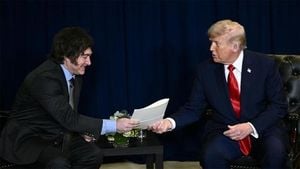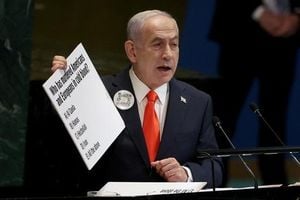On the morning of September 25, 2025, the Immigration and Customs Enforcement (ICE) field office in Dallas became the site of a harrowing attack that has since reverberated through the nation’s political and law enforcement circles. The shooter, identified by officials as 29-year-old Joshua Jahn of Collin County, Texas, opened fire from a nearby rooftop, killing one detainee and injuring two others before turning the weapon on himself. No ICE agents were harmed in the attack, but the event has triggered a flurry of responses from government officials, law enforcement, and advocacy groups, each offering a distinct perspective on the causes and consequences of the violence.
According to the FBI, Jahn meticulously planned his assault. Investigators revealed that, in the weeks leading up to the attack, Jahn used mobile applications to track ICE agents and downloaded a document listing Department of Homeland Security (DHS) facilities in Dallas County. FBI Director Kash Patel stated on X (formerly Twitter) that agents had seized numerous devices and handwritten notes from Jahn’s residence, including a chilling message: “Hopefully this will give ICE agents real terror, to think, ‘is there a sniper with AP [armor-piercing] rounds on that roof?’”
Patel also disclosed that Jahn had conducted online searches for footage of the recent assassination of conservative activist Charlie Kirk in Utah between September 23 and 24, suggesting a disturbing fascination with high-profile acts of violence. Bullet casings recovered at the scene were engraved with anti-ICE messages, reinforcing the shooter’s apparent motive. The attack unfolded as Jahn fired indiscriminately at the ICE building and an unmarked transport van in the facility’s sally port, where the victims were located. Authorities found Jahn dead on the rooftop, rifle by his side.
The immediate aftermath saw a swift and forceful response from the federal government. Tricia McLaughlin, a spokesperson for the Department of Homeland Security, announced that ICE facilities nationwide would see a rapid increase in security measures. “In light of today’s horrific shooting that was motivated by hatred for ICE and the other unprecedented acts of violence against ICE law enforcement, including bomb threats, cars being used as weapons, rocks and Molotov cocktails thrown at officers, and doxing online of officers’ families, DHS will immediately begin increasing security at ICE facilities across the country,” McLaughlin said in a statement to NewsNation. She noted a staggering increase in assaults against ICE officers—over 1000 percent in recent months.
McLaughlin also issued a pointed warning to critics of the agency: “For months, we’ve been warning politicians and the media to tone down their rhetoric about ICE law enforcement before someone was killed. This shooting must serve as a wake-up call to the far-left that their rhetoric about ICE has consequences. Comparing ICE day-in and day-out to the Nazi Gestapo, the Secret Police, and slave patrols has consequences.” She underscored the humanity of ICE officers, emphasizing that they are “fathers and mothers, sons and daughters” who “just want to go home to our families at night.”
The political response was swift and, in some quarters, incendiary. President Trump took to Truth Social with a lengthy tirade, blaming “Radical Left Democrats” for inciting violence against ICE and vowing to “dismantle these Domestic Terrorism Networks.” According to The Hill and NewsNation, Trump’s comments were echoed by allies such as Stephen Miller and Senator JD Vance, both of whom used the incident to call for a crackdown on groups and individuals critical of ICE. Miller tweeted that “this language incites violence and terrorism,” referring to public figures who have described ICE as authoritarian.
Steve Bannon, a longtime Trump confidant, confirmed in texts to NewsNation that the administration was preparing to investigate not only activist groups but also media outlets accused of “goading” violence against ICE. “Absolutely,” Bannon replied when asked if federal law enforcement would target such groups. He cited Trump’s recent executive order designating antifa a “domestic terrorist organization” and pointed to ongoing discussions within the Justice Department about bringing criminal charges against billionaire Democratic donor George Soros. “Now you will see the power of the state crush this escalating political violence,” Bannon declared.
Yet the legal and constitutional implications of such a crackdown are anything but straightforward. Jameel Jaffer, executive director of the Knight First Amendment Institute, told NewsNation that “no court will accept that something like calling ICE ‘authoritarian’ constitutes incitement of ‘violence’ or ‘terrorism’ under the law, as it’s political expression and advocacy.” He added, “You will not find a First Amendment scholar or litigator anywhere who will tell you that this crosses a constitutional line. It’s plainly protected.” Jaffer warned that even the threat of investigations could have a chilling effect on free speech: “The threat to do it is itself a form of intimidation. It’s intended to chill lawful political expression.”
Liberal advocacy groups, for their part, are bracing for what they fear may be a wave of government investigations based on their public criticism of ICE. A senior leader at a prominent immigration advocacy organization told NewsNation, “We’re absolutely expecting that they’re going to use this moment, and what they consider anti-ICE rhetoric, to come after organizations. We have been doing everything we can to prepare.” Legal advisers to these groups have echoed this concern, noting that the administration’s actions could set a precedent for targeting constitutionally protected speech and advocacy.
As the investigation into Joshua Jahn’s motives continues, his family has expressed deep shock and distress. Jahn’s mother, Sharon, told The Independent through tears, “I’m sorry, I can’t talk to you right now. I’m sorry, I’m so sorry. But I just can’t talk to you now.” Jahn’s brother, Noah, similarly struggled to process the tragedy, telling NBC News, “I’m still trying to... I’m back and forth with the police, I’m just...” before ending the call. Family members insisted that Jahn was not particularly political and “didn’t have strong feelings about ICE, as far as I knew.” Public records show that he was not registered with any political party.
Despite the shooter’s apparent lack of formal political affiliation, the Dallas attack has become a flashpoint in the intensifying national debate over immigration enforcement, political rhetoric, and the boundaries of lawful dissent. With the federal government moving to bolster security at ICE facilities and political leaders signaling a willingness to pursue investigations of their critics, the aftermath of this tragedy is certain to shape the contours of public discourse—and the exercise of political rights—for months to come.
As the dust settles in Dallas, the country finds itself at a crossroads, grappling with the balance between security, free speech, and the ever-present specter of political violence.




